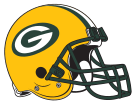The NFL's Ownership Rules

Stephen Squibb's N+1 piece on the NFL lockout sheds light on something I've wondered about from time to time. How come you don't see more teams organized as co-ops the way the Green Bay Packers are? Conversely, how come you don't see teams organized as regular firms with shares listed on the stock exchange? Apparently it's against the rules in both cases:
It is this kind of public—a universally available and voluntary association—that the league outlawed in 1961, when it stipulated that "No corporation, association, partnership or other entity not operated for profit nor any charitable organization or entity not presently a member of the league shall be eligible for membership." The new rules demanded that each team be owned by at least one person with a minimum controlling interest of 30 percent. As the value of each team has risen, so has the height of this barrier to entry, which has recently become so high as to trigger a kind of succession crisis in Pittsburgh. There the problem was that no individual Rooney child had enough millions to buy out any of the others in order to create the necessary 30 percent share. Acting quickly to preserve one of its prized aristocracies, the league declared some owners more equal than others, allowing the combined 32 percent stake of the two Rooney boys to count as that of one individual.
This kind of weird protectionism all occurring in a league that benefits from an anti-trust exemption and billions in taxpayer subsidies for stadiums. That leads to a good line:
It has frequently been said that in this country we have socialism for the rich and capitalism for the poor. What the case of the NFL demonstrates so clearly is that what we have, in fact, is whatever the rich want whenever they want it. And whatever they want always gets the same name, free market capitalism, regardless.
This, indeed, is what you see over and over again. "I can't dump water on David Koch's lawn" is property rights, and "David Koch can pollute the air as much as he wants" is also property rights; opposing progressive taxation is freedom and pharmaceutical monopolies are also freedom.


Matthew Yglesias's Blog
- Matthew Yglesias's profile
- 72 followers



